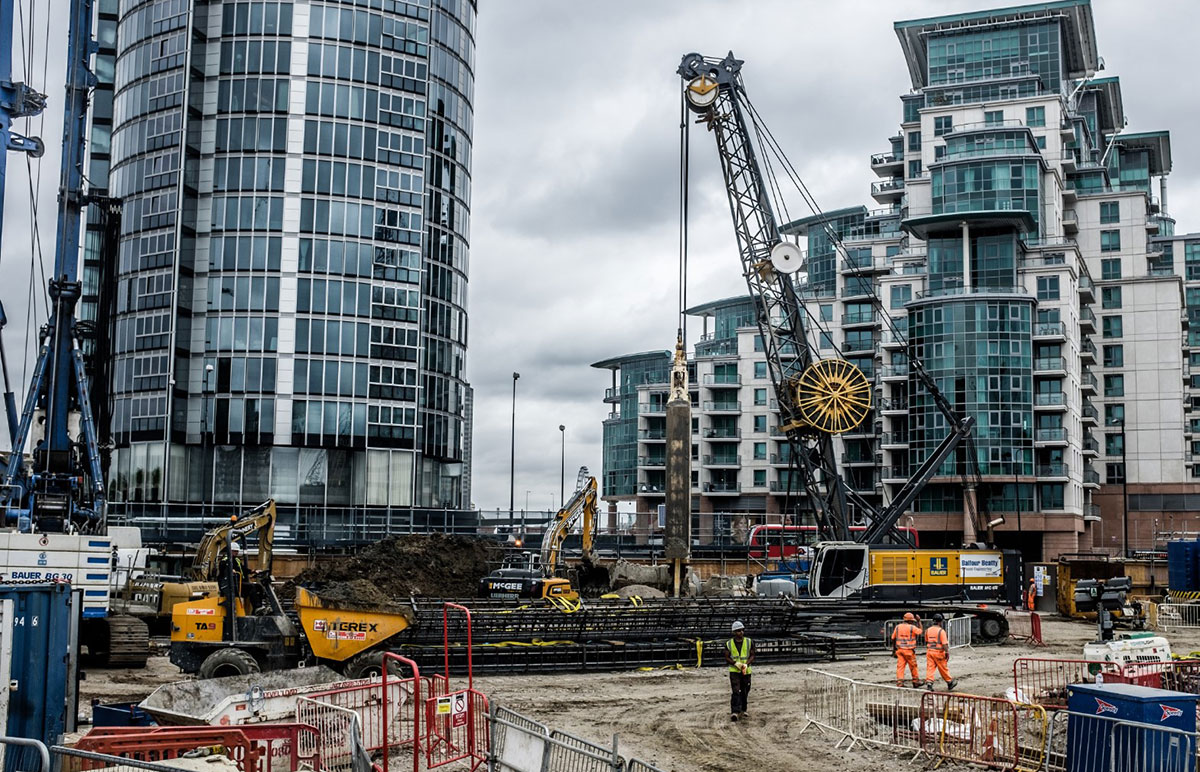How Geotheta can Save You Time, Stress, and Money.
How Geotheta can Save You Time, Stress, and Money.
Blog Article
The Only Guide to Geotheta
Table of ContentsGeotheta - TruthsLittle Known Facts About Geotheta.The smart Trick of Geotheta That Nobody is Talking AboutThe 7-Second Trick For GeothetaThe Only Guide for Geotheta

They perform website examinations, collect examples, do lab examinations, and examine information to evaluate the suitability of the ground for construction tasks - Engineer of Record. Based on their findings, geotechnical designers give recommendations for foundation style, slope security, retaining frameworks, and reduction of geotechnical hazards. They collaborate with various other experts, such as architects, structural designers, and building and construction teams, to make certain that geotechnical factors to consider are integrated right into the overall task layout and execution
By examining the behavior and homes of dirt and rock, they can determine potential geotechnical risks such as landslides, dirt settlement, or slope instability. Their knowledge aids prevent failings or mishaps that can threaten lives and residential or commercial property. Here are some thorough duties and obligations of a geotechnical designer: Website Examination: Geotechnical engineers conduct website examinations to gather data on subsurface conditions.
They translate the data to comprehend the residential properties and actions of the soil and rock, including their strength, permeability, compaction qualities, and groundwater conditions. Geotechnical Analysis and Style: Geotechnical engineers evaluate the data gathered throughout website examinations to examine the security and viability of the website for construction jobs. They do geotechnical calculations and modeling to examine elements such as birthing capability, settlement, slope security, side earth pressures, and groundwater circulation.
Geotheta for Beginners
Structure Design: Geotechnical designers play a crucial duty in creating foundations that can securely sustain the intended structure. They examine the dirt problems and load demands to determine the ideal structure kind, such as superficial structures (e.g., grounds), deep structures (e.g (https://geotheta.wordpress.com/2024/08/02/unlocking-the-secrets-of-geotechnical-engineers-the-geotheta-advantage/)., piles), or specialized strategies like soil improvement. They take into consideration aspects such as negotiation limits, birthing capacity, and soil-structure interaction to establish ideal structure designs
They review construction plans, monitor website activities, and conduct area assessments to verify that the layout referrals are complied with. If unexpected geotechnical problems develop, they examine the scenario and provide suggestions for removal or modifications to the design. Threat Evaluation and Reduction: Geotechnical designers evaluate geotechnical hazards and threats related to the job site, such as landslides, liquefaction, or soil disintegration.

Partnership and Communication: Geotechnical engineers function carefully with other professionals associated with a project, such as engineers, structural designers, and building groups. Efficient communication and cooperation are vital to integrate geotechnical factors to consider right into the total job design and construction procedure. Geotechnical engineers provide technological competence, answer questions, and guarantee that geotechnical needs are met.
The Single Strategy To Use For Geotheta
Here are some kinds of geotechnical engineers: Foundation Engineer: Structure designers concentrate on developing and assessing foundations for structures. They examine the dirt problems, tons requirements, and site characteristics to establish the most proper structure kind and design, such as shallow structures, deep foundations, or specialized techniques like pile foundations.
They evaluate the factors influencing slope stability, such as soil properties, groundwater conditions, and slope geometry, and develop strategies to avoid slope failures and alleviate dangers. Quake Engineer: Earthquake engineers concentrate on assessing and developing structures to endure seismic forces. They examine the seismic threat of a website, review dirt liquefaction potential, and develop seismic design criteria to guarantee the security and durability of frameworks throughout earthquakes.
They perform area testing, collect samples, and assess the accumulated data to characterize the dirt homes, geologic formations, and groundwater problems at a website. Geotechnical Instrumentation Designer: Geotechnical instrumentation engineers concentrate on surveillance and measuring the habits of soil, rock, and frameworks. They set up and maintain instrumentation systems that check variables such as soil negotiation, groundwater levels, incline motions, and structural variations to examine performance and provide very early warnings his explanation of potential concerns.
The Buzz on Geotheta
They perform examinations such as triaxial examinations, consolidation tests, direct shear examinations, and permeability examinations to collect information for geotechnical analysis and layout. Geosynthetics Engineer: Geosynthetics engineers concentrate on the design and application of geosynthetic materials, such as geotextiles, geogrids, and geomembranes. They use these materials to boost soil stability, enhance slopes, supply water drainage services, and control disintegration.
They tend to be investigative people, which suggests they're intellectual, introspective, and analytical. They wonder, systematic, rational, logical, and rational. Some of them are likewise social, suggesting they're kind, charitable, participating, client, caring, useful, compassionate, skillful, and pleasant. Does this seem like you? Take our free career test to discover out if geotechnical designer is just one of your leading occupation matches.
In the workplace environment, geotechnical engineers utilize specialized software tools to perform calculations, create designs, and assess information. They prepare records, testimonial project specifications, connect with customers and staff member, and coordinate project tasks. The workplace setting offers a conducive setting for research study, analysis, and collaboration with various other specialists associated with the job.
Getting The Geotheta To Work
They regularly check out project websites to perform site examinations, examine geotechnical conditions, and gather data for analysis. These gos to entail traveling to various locations, occasionally in remote or challenging terrains. Geotechnical engineers might carry out dirt tasting, conduct tests, and screen construction tasks to ensure that the geotechnical elements of the project are being applied appropriately.
Geotechnical designers also work in specialized geotechnical labs. Geotechnical research laboratory engineers work extensively in these atmospheres, taking care of screening equipment, operating tools, and recording data.
Report this page